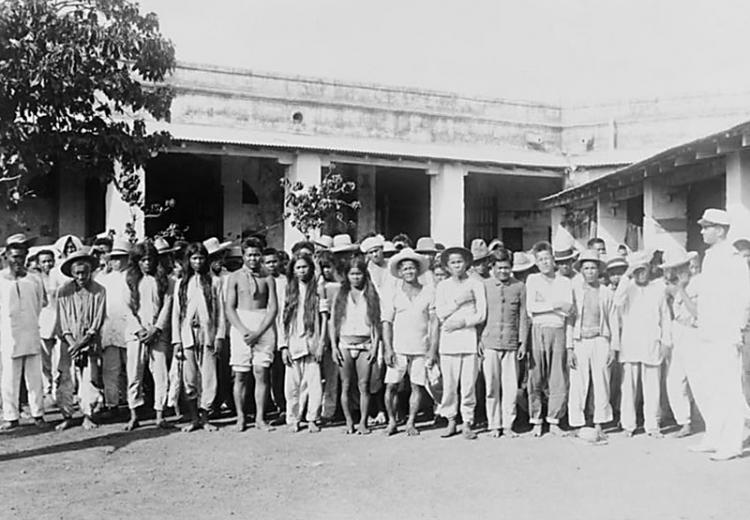Lesson 3: The Matter of the Philippines

Group of Filipino prisoners of war, posed in courtyard, c. 1900.
The treaty of peace ending the Spanish-American War resulted in the United States obtaining the Philippine Islands from Spain. Despite intense political opposition to the acquisition of the islands, the U.S. Senate ratified the Treaty of Paris in 1899. The political impact of anti-imperialist arguments, the difficult experience of suppressing native Filipino resistance, and the lack of attractive opportunities for further territorial expansion, all effectively stalled the American imperialist/expansionist movement. The United States would experiment thereafter with less intrusive means of exercising international influence, such as Open Doors and protectorates, which contained their own practical and moral challenges.
In this lesson, students examine the controversy surrounding the Philippines as they read documents and participate in a role playing exercise that places them as advisors to the President.
Guiding Questions
What are the short and long term consequences of the U.S. annexation of the Philippines?
What role should the United States play in the world?
Learning Objectives
Examine the conflicting positions of people involved in the decision to annex the Philippines.
Evaluate the consequences of the decision made by the U.S. regarding the Philippines.
